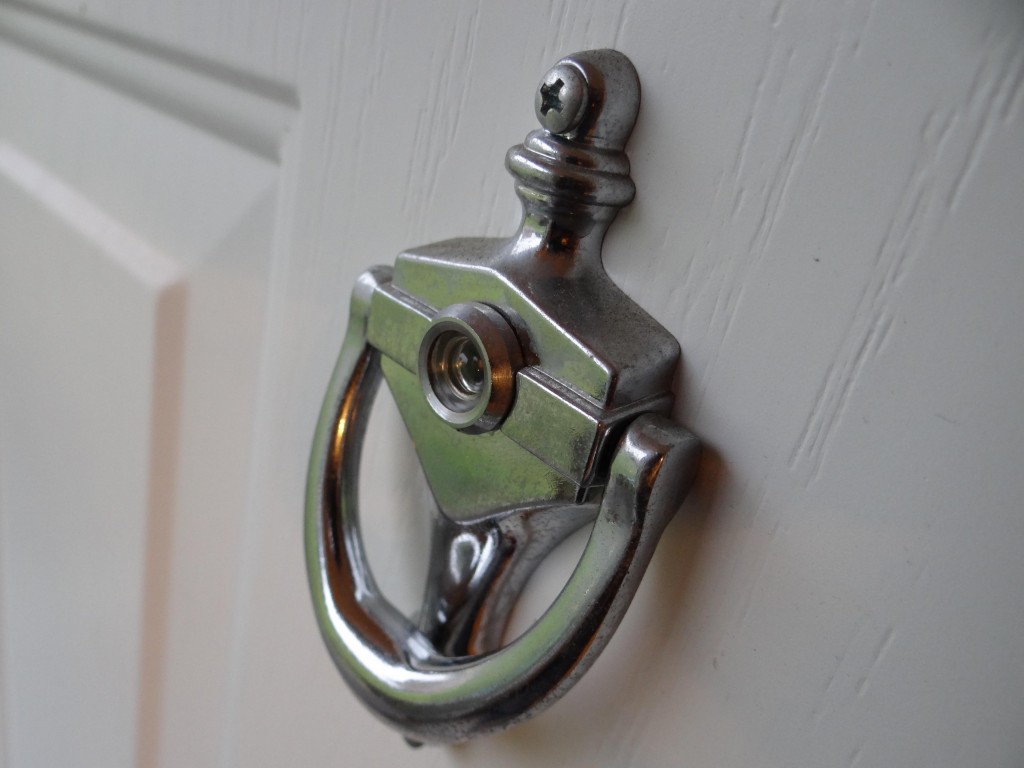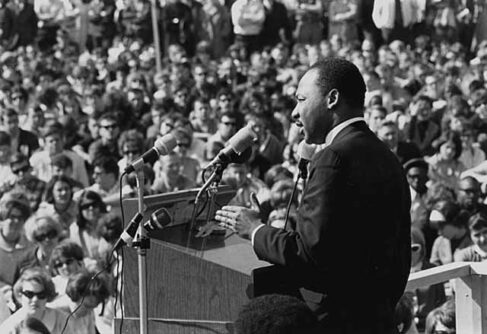Who’s there?
Phil.
Phil who?
Phil Anthropist!
I’ll admit, that’s pretty corny, even by knock-knock joke standards.
But, if you believe the recent research of some economists, knocking on doors to raise funds doesn’t always bring out philanthropic impulses.
Old-fashioned, low-tech door-to-door fundraising campaigns persist even in an age where all the buzz surrounds fundraising on new social media platforms because door-to-door campaigns incorporate the high-pressure tactic of an in-person request. It’s simply much tougher to turn down a solicitor standing in your doorway than it is to drop a letter asking for a donation into the recycling bin or to ignore a fundraising text.
And it’s the “cost” of feeling the pressure from an in-person solicitation that some economists say makes door-to-door fundraising problematic. University of California-Berkeley economists Stefano DellaVigna and Ulrike Malmendier and their University of Chicago colleague John A. List conducted a clever experiment to find out how much social pressure to give to someone on your doorstep drives people to give to a charity when they would rather not—or to give more than they might otherwise give. In their experiment, they studied how door-to-door fundraising campaigns were affected when flyers announced that a door-to-door solicitor would visit the next day. In some cases, the flyers included a box to be checked if the household did not want a solicitor to visit.
What happened when these flyers announcing a solicitor’s visit were dropped off? Did more people stay at home to make a donation? Or did more people ignore the doorbell, thereby avoiding the solicitor?
Well, perhaps you won’t be surprised to learn that fewer people responded to a knock on the door when they had been alerted that a solicitor would be standing outside—and plenty of households took the chance to check off the box that let them avoid a knock on the door altogether.
By comparing these results to those from standard fundraising campaigns without a flyer that lets people avoid solicitors, the economists conclude that half of donors to a door-to-door campaign would have preferred not to donate at all—and a majority of donors give more than they would have liked. It seems that many donors to door-to-door campaign give not because they are truly philanthropic, but because they want to avoid the shame of appearing miserly.
These economists conclude that this is no small matter, because door-to-door campaigns are so common:
…our results indicate that unsolicited campaigns may lead to utility losses equivalent to hundreds of millions of dollars for the givers.
Yikes! That’s a big loss of “utility,” which is economists’ way of measuring happiness or satisfaction.
So does that mean that door-to-door campaigns are just a way of strong-arming people into supporting causes they don’t truly want to support?
That would be a very ugly picture of this sort of fundraising. And it seems that can’t simply be the whole story. If door-to-door campaigns left too much ill will in their wake, charities would risk alienating donors over the long term.
I think of how my late father canvassed annually for a national charity in the neighborhood where my parents lived for many decades. The fact that neighbors knew him and would see him again at other points in the year surely increased the social pressure to make a donation. And yet, for the most part, people seemed to welcome his visits—sometimes people would even ask when he would be coming to ask for their donation. It’s hard to suppose his neighbors felt that he was subtracting from their “utility” and making the neighborhood a less congenial place.
One important clue into seeing the difference between my father’s door-to-door fundraising and the fundraising that takes away “utility” is the economists’ finding that the most troublesome cases are those where people feel pressured into making a small gift of less than $10. Donors of this size are perhaps people under financial strains who truly can’t afford to give easily—or are donors giving only a token amount to avoid the stigma of not giving. Recognizing that door-to-door campaigns aren’t simply strong-arm tactics that extort unwilling donations, the economists don’t recommend abolishing door-to-door campaigns, only making it easier for people who truly don’t want to be solicited to opt out of having someone knock on their doors.
Asking for a charitable gift requires careful social judgment; for the one who would raise funds in a door-to-door campaign, that careful social judgment is required each time one stands on a household’s threshold to make the request for a gift an opportunity for philanthropy rather than a time to feel afraid of shame.






